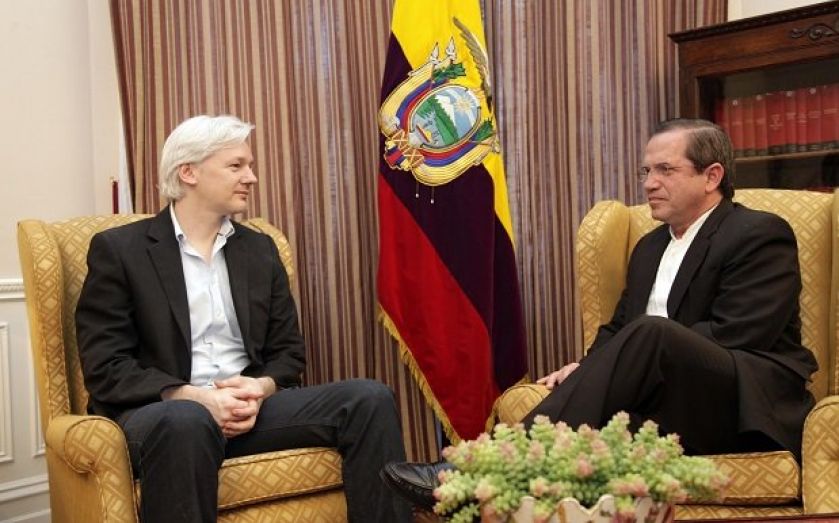Julian Assange confirms plans to leave Ecuadorian embassy

Wikileaks founder Julian Assange has confirmed plans to leave the Ecuadorian embassy, after widespread rumours he was planning to give himself up.
The 43 year old Australian had taken refuge in the embassy for two years and is reportedly suffering from heart and lung problems.
Ecuador's President Rafael Correa, a self-declared enemy of "corrupt" media and U.S. "imperialism," granted the former computer hacker political asylum in August 2012, deepening a diplomatic standoff with Britain and Sweden.
Assange has been under constant surveillance, with police permanently stationed outside the Knightsbridge address. He has insisted that Wikileaks does not pose a threat, telling the Daily Mail in an interview: "Maybe it’s time to think that WikiLeaks is not the main problem here for the West, maybe me and my publishing house are a lesser threat than say the Islamic State in Iraq or, closer to home, paedophiles in Westminster".
Ricardo Patino, the Ecuadorian foreign minister, said it was time to free Julian Assange and for his human rights to be respected. He called on the international community and journalists to join in the fight for Assange's rights. Furthermore, he reiterated Ecuador's offer of protection for Julian Assange and continued to grant him political asylum.
In a press conference held at the embassy, Assange told an audience of 20 journalists he is planning to leave the embassy "soon" but not "reported by the Murdoch press".
During the press conference, he emphasised he had not been charged with an offence either in the UK or in Sweden. Answering a question regarding his health, Assange replied:
As you can imagine, being detained for various ways in this country for four years – and in this embassy for two years which has no outside area and therefore no direct sunlight …it is an environment in which any healthy person would find themselves soon enough with certain difficulties.